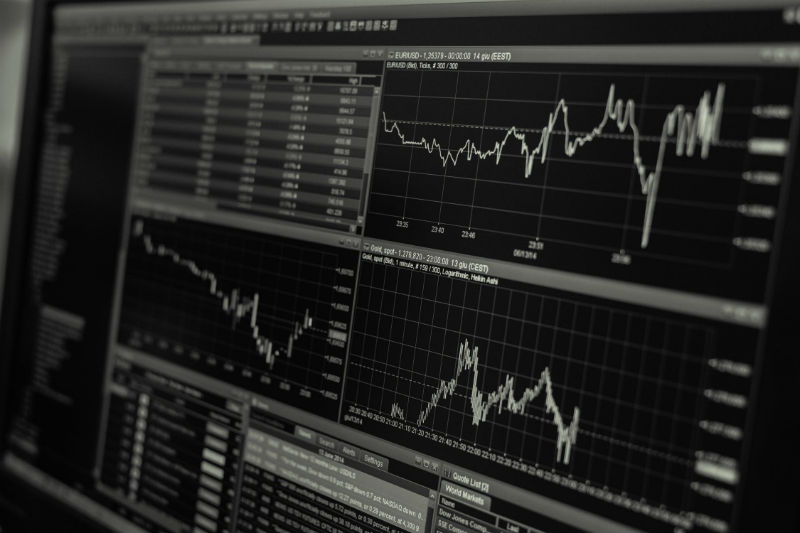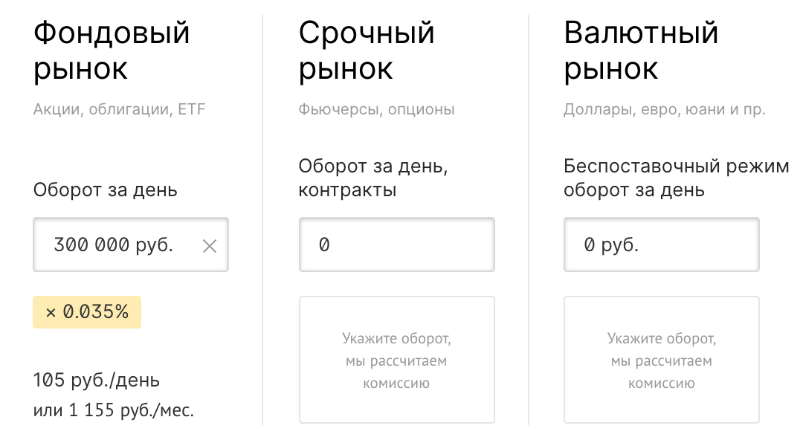Investments on the stock exchange and associated costs: how much are the services of a brokerage company

Image: Pexels
In our blog on Habré we actively write about investments on the stock exchange, starting work for beginners (for example, using test access ), choosing the least risky tools ( model portfolios , structured products ) and self-education on the topic.
An analysis of comments on recent posts showed that many readers are not very well aware of how the services of brokerage companies are arranged, how much they should cost, and what brokers earn at all. We correct this gap and talk about the structure of tariffs for brokerage services.
Why brokers are needed at all
According to the law, a private person cannot just take and begin to perform operations on the exchange. To do this, you need an intermediary who will conduct transactions on behalf of the client. Such intermediaries are called brokers.
A broker is a company with a special license that registers a client on the stock exchange and assigns special codes for transactions, keeps track of your funds and assets (for example, stocks) and makes settlements. In addition, a brokerage company acts as a tax agent for its client - it calculates and holds personal income tax.
In 2019, about three hundred brokerage companies operated in Russia. Among them, there are organizations that are part of a financial group, for example, with banks, and independent companies.
What the broker takes money for
Brokerage fees are divided into several types. The main commission is the commission for the transaction, so let's start with it.
Commission for operations
Commissions are calculated as a percentage of the transaction amount. Moreover, turnover is often taken into account - the higher the amount of transactions that a particular investor conducts, the more favorable conditions he can get.
For example, in ITI Capital, the commission for a turnover of more than 50 million rubles per day is only 0.017% of the transaction amount. If the turnover is less than 1 million per day, then the commission will be 0.035%. In this case, with a transaction to buy shares, bonds or ETFs for 100 thousand rubles, you will pay only 35 rubles (of course, the commission will also be on the sale of this asset).
It is important to understand that the volume can be “made” not only by large-scale transactions worth millions of rubles, but also by a large number of small operations - for example, in the case of automated trading using special robots.
When choosing a broker and analyzing tariffs, it is worth considering the fact of the existence of a commission of the exchange itself. In our case, it is included in the tariffs, but sometimes it can be taken into account separately. Also, there is always a threshold for a minimum commission for operations - in our case, it cannot be less than 0.10 rubles.
We have created a convenient calculator with which you can understand what commission will be specific in your case:

Also, for beginner investors, we have a special tariff at which no commission is charged at all for the first month of work on the exchange.
Custody service
The rights of investors to securities are recorded by the broker's depository. These services are also paid. There are various rates - for investors or for speculators.
For example, our company has a special depository service tariff for investors, which does not have a monthly fee, but only a minimum fee of 0.005% of the average monthly portfolio value. In this case, if you have assets worth 1 million rubles, the depositary service fee will be 50 rubles.
Software, infrastructure for trade
In addition to services directly related to transactions on the exchange, a broker may charge a fee for the use of certain software or technology.
For example, we at ITI Capital ourselves develop trading terminals, and access to them is free for users. However, there are products of our partners, which may be paid. Other brokerage companies may have different conditions.
In addition, there is a separate line of services for traders involved in automated trading using special software. They can use a direct connection to the exchange - bypassing the broker's trading system - which costs money.
Also, for faster transactions, traders can install their equipment in the so-called exchange colocation zone - that is, as close as possible to the core of the exchange trading system. These services are also costly. You can read more about all such technological services and their costs here .
Extra charges
In addition to the costs of commissions, storage of securities and technological products for trading on the exchange, other costs may arise. For example, there are fees for withdrawing funds.
Also, if you want to carry out operations with borrowed funds (“margin lending”), it also costs money. Leverage trading is generally an interesting topic, we will talk about the risks and opportunities that it opens in one of the following articles.
Conclusion
In order to successfully invest on the exchange and at least not lose your money, you need to make some efforts.
To understand exactly what profit you can get when using a specific strategy or investment product, you need to study, including the costs of brokerage services. Otherwise, a situation may arise in which a small profit from trade will be "eaten up" by commissions.
Therefore, it is important to use strategies that, on the one hand, allow you to control risk, and on the other hand, allow you to make a profit that will cover the costs of the trade itself. We talk about them in our blog.
Useful links on the topic of investment and stock trading:
All Articles